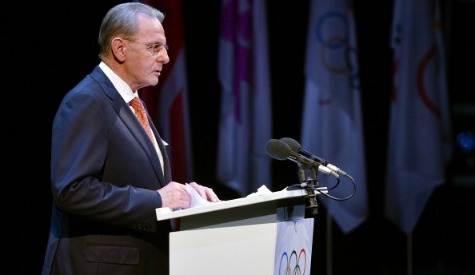 Governments and banks may be collapsing, but the International Olympic Committee (IOC) has arrived in London in rude financial health.
Governments and banks may be collapsing, but the International Olympic Committee (IOC) has arrived in London in rude financial health.
This much was made clear at the 124th IOC Session by Richard Carrión, chairman of the IOC's Finance Commission and a possible contender to replace President Jacques Rogge (pictured) when he steps down next year.
Carrión confirmed – as disclosed by insidethegames in May – that the total raised by selling Olympic broadcasting rights for 2009-2012 had shot ahead to $3.91 billion (£2.51 billion/€3.24 billion) from just $2.57 billion (£1.65 billion/€2.13 billion) in the four years to the Beijing 2008 Games.
But he also revealed that $3.7 billion (£2.38 billion/€3.06 billion) in broadcast revenues has already been contracted for the next four-year period, culminating with Rio 2016 – with "still quite a few territories to be negotiated in the next few months".
A further $2.6 billion (£1.67 billion/€2.15 billion) in broadcast income has already been contracted for 2017-2020, with the choice of the 2020 Summer Games host still more than a year away.
In a set of figures whose robustness was described as "an extraordinary event" by Kevin Gosper, a veteran IOC member from Australia, Carrión showed that the Movement's assets had continued to edge ahead during the recent months of global financial turbulence and now stood at some $564 million (£364 million/€468 million).
In a lengthy contribution, Samih Moudallal, the IOC member for Syria, urged Carrión to "look closely" at how the IOC's funds were invested, arguing that investments in shares could be dangerous and lead to the IOC's assets being reduced.
Carrión replied that, while most of the body's investments were in fixed income instruments, the IOC also invested in real estate, commodities and equity markets.
"I think we have protected the value of [our] capital having come through difficult financial times," he said.
By David Owen at the Grosvenor House in London
Source: www.insidethegames.biz
